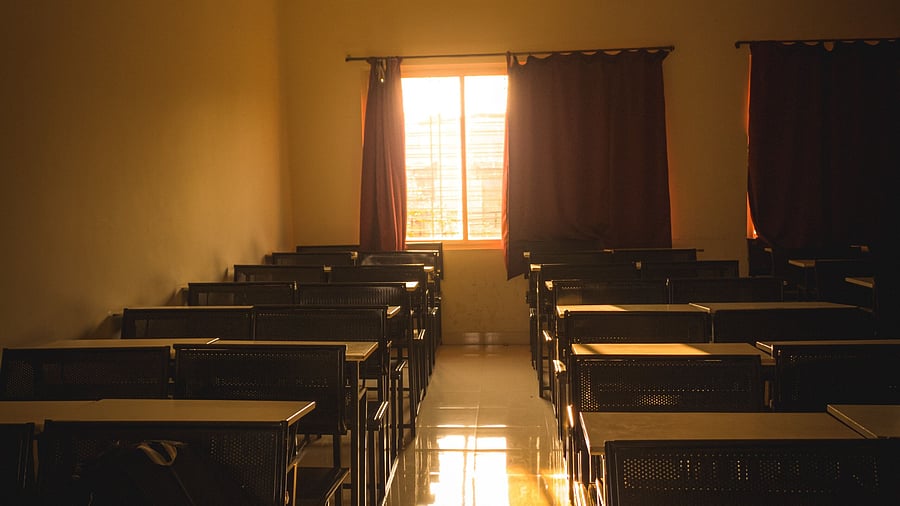
Representative image of a classroom.
Credit: Unsplash Photo
The West Bengal government’s higher education department is forming “umbrella-shaped” clusters of schools, degree colleges, technical and professional colleges, and universities.
The cluster-approach is expected to help in sharing of institutional resources and infrastructure across state’s institutions. This approach, in turn, will facilitate collaborative learning and capacity-building for students, and teachers.
“After elaborate discussion with various stakeholders at the district level, 20 (twenty) such composite clusters across 17 (seventeen) districts have been formed in the first phase,” the higher education department stated in a note.
The Bengal government had published its own education policy in September. The State Education Policy, 2023 is intended for revamping the current education system, cutting across all levels. The idea of sharing resources in the education ecosystem, percolates from the policy.
“These composite clusters shall be assisted and guided by the state level and district level committees. The responsibilities of carrying out the prospective activities shall remain with the cluster level and hub level task forces, under the overall guidance of the district level team,” the note added.
Earlier in April, the state education department had issued guidelines on the cluster-approach for the state’s and state-aided schools. The decision, now, to form composite clusters of the different institutions, at different levels, namely – schools, general degree colleges, technical and professional colleges, and universities, is in continuity with the earlier decision.
“A comprehensive ‘Guidelines on ‘Hubs of Learning’ through cluster approach consisting of Schools and Higher Education Institutions’ with horizontal and vertical integration has been issued… to all district magistrates,” the higher education department has stated.
The suggested list of activities include exposure visits, seminars, career counselling sessions, vocational courses, soft skills (English Speaking, other activities), training for competitive examinations, projects, and sharing of institutional infrastructure.
Other activities on the list are the teacher/ faculty exchange programmes and collaboration in teaching-learning on various components like computer education, latest technologies such as AI, ML, Data Science, research collaboration, refresher courses, community knowledge sharing programmes, evening courses, motivational talks/ mentoring sessions, and value education.
Besides, promotion of games and sports, cultural activities, workshops and exhibitions, promoting industry-academic partnership, and promoting skill development courses and vocational learning, are the remaining activities.
The department has held video conferences with ADMS, in-charge of education, and other stakeholders of the districts. Meetings have also taken place between the district-level officials, and the representatives of the “Hub and Spoke Schools” and “HEIs”. The meetings are for preparation of action plans for the district level committees.